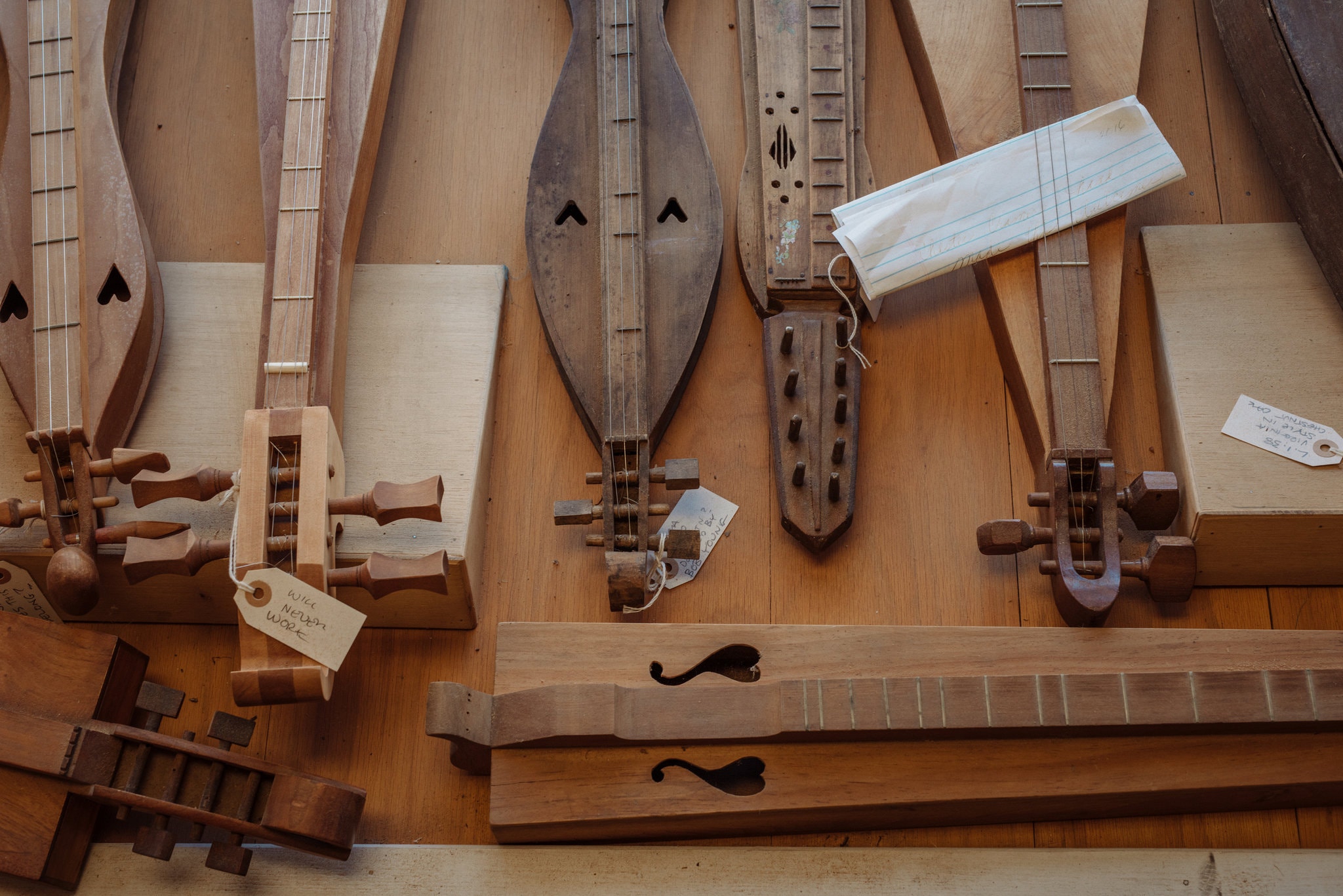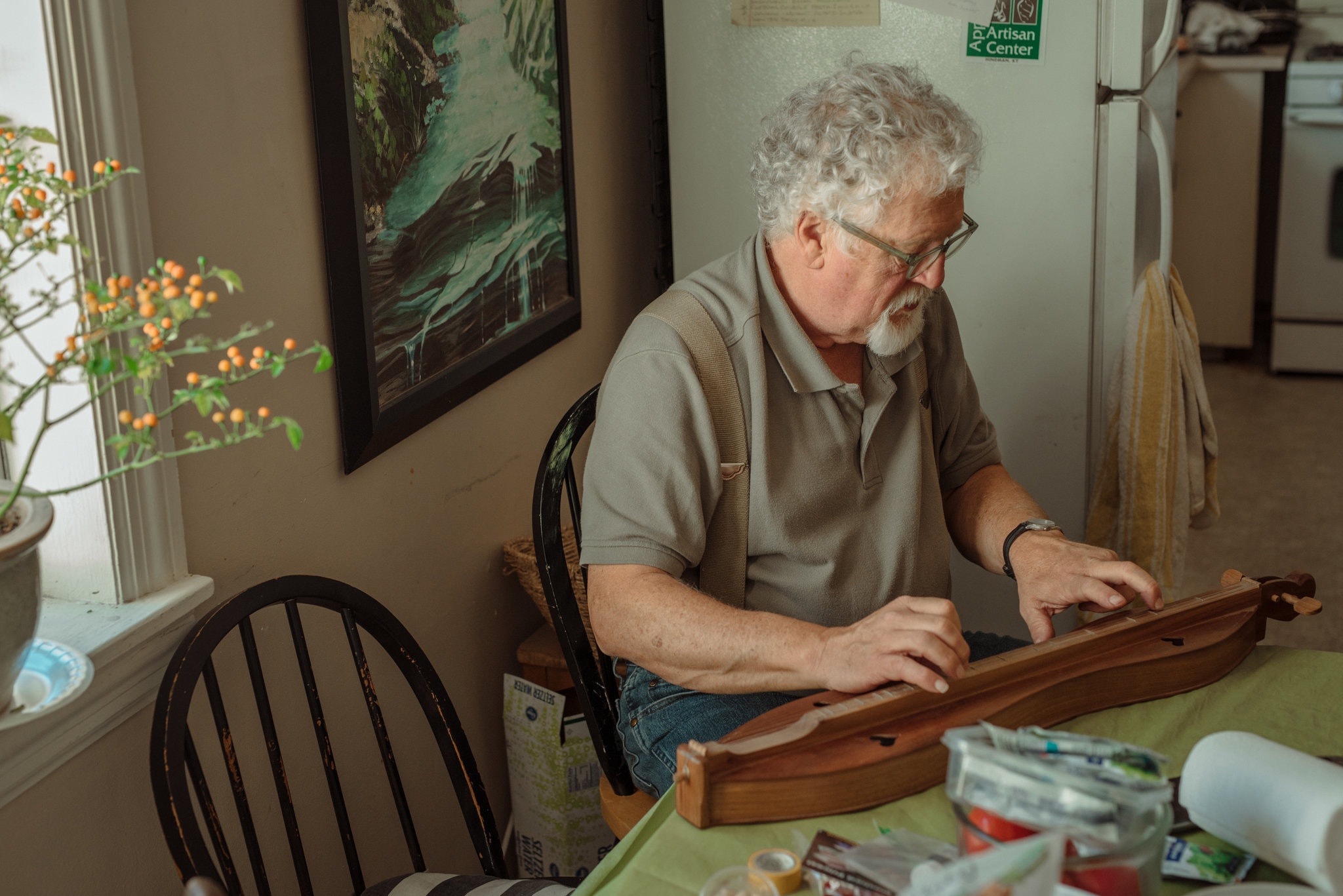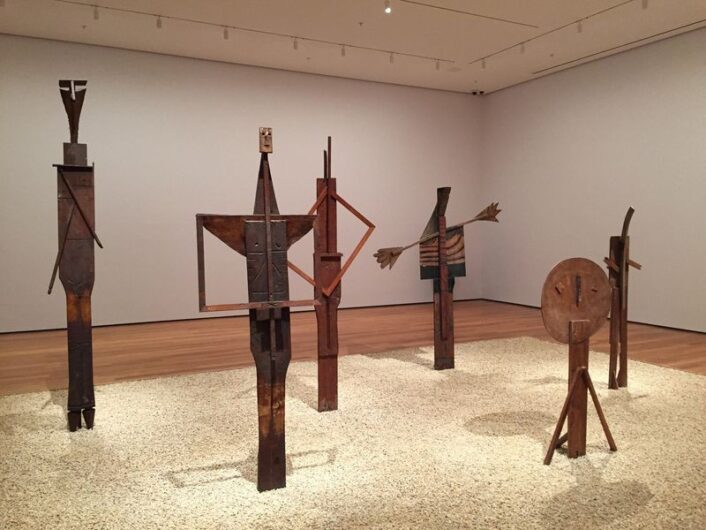Visiting the Appalachian School of Luthiery, April 2019.
Culture
Appalachian School of Luthiery- a fabulous “feel good” story!

Dulcimers from the 19th and 20th-century at the Appalachian School of Luthiery.
Image courtesy of: The New York Times, photographed by: Mike Belleme
Nestled deep in the heart of the Kentucky mountains, where people were the hardest hit from the demise of the coalfield industry and where methamphetamine ravaged a large portion of the population, the Appalachian School of Luthiery has set itself apart by promoting the work of artisans and craftsmen and by building a reliable source of support and income to a select dedicated and reformed few.
Hindman is located in Eastern Kentucky… sadly this is one of the poorest regions in the United States and an early epicenter of the opioid crisis. With death rates at twice the national average, economic hardships due to the coal industry demise and geographical isolation are two factors that add to the hopelessness of the region. Thanks to the luthiers from the Appalachian Artisan Center, a bit of hope has emerged in the region.

Master luthier, Doug Naselroad plays a mountain dulcimer. He made an exact replica of one that was created in 1928 by James Edward “Uncle Ed” Thomas. Naselroad is the founder of Culture of Recovery, a true treasure in Eastern Kentucky
Image courtesy of: The New York Times, photographed by: Mike Belleme
Culture of Recovery is an apprentice program for young adults recovering from substance abuse. Thus far, around 150 recovering participants have learned to make and repair stringed instruments under the tutelage of skilled artisans such as Doug Naselroad, a master luthier who, with a former colleague, dreamed up the program. Naselroad says, “We’re dusty old woodworkers, not trained therapists. But so many times now, giving somebody something to do has proved to be a powerful step in their recovery.”
Attention to detail, sharp focus, and commitment to a goal are all qualities that can help during a recovery process. These are aspects that tie into the art of crafting an instrument by hand. Of course therapy, peer-support groups, and other rehabilitation work is also vital. The participants come to the program through a partnership between the Artisan Center (a local residential rehab center for men) and the Knott County Drug Court which is just a stone’s throw away from the school.

Nathan Smith with a guitar he made. The drug court gave Smith three apprentice options: blacksmithing, pottery, or luthiery. As a musician, he opted for the later. The court required Smith to attend the school once a week, for two hours. However within a couple of months, Smith was showing up at 8:30 and staying for the entire day. He was hooked!
Image courtesy of: The New York Times, photographed by: Mike Belleme
A $475,000 grant from ArtPlace America (a collection of foundations, federal agencies, and other programs that fund arts projects dedicated to community development) helped get the program started. The Troublesome Creek Stringed Instrument Company, a new non-profit founded by Naselroad and the Artisan Center, has six full-time employees, two of which are former Culture of Recovery apprentices. Troublesome Creek hopes to gain enough exposure and receive enough orders to be able to expand its operation… and to hire more committed Culture of Recovery apprentices.
Since the start of 2018, about 40 students have gone through the luthiery program. Nearly all were either referred to luthiery through drug court, a supervised treatment program offered to convicted criminals in lieu of jail time, or via a nearby rehab center. Nathan Smith is one the graduates, and now a promising luthier; he fell in love with the art after making his first dulcimer. Apprenticing at the school for almost a year, he says, ““I fell in love with it real quick. It is something I had a passion for that I didn’t even realize.”

Guitar strings waiting to be finished at the Troublesome Creek Stringed Instrument Company.
Image courtesy of: Forbes, photographed by: Clary Estes
The idea behind Culture of Recovery was inspired by Earl Moore. A recovered addict, he had been arrested, attempted suicide twice, and relapsed time and time again. Moore had a love for woodworking which he believes he inherited from his forebears. When the Appalachian School of Luthiery opened in town, he approached Naselroad. Understanding that it would be hard to pass a background check, he told Naselroad that he believed this job would save his life. Moore apprenticed with Naselroad for six years, built 70 instruments, and formed a lasting bond with Naselroad.
Moore understood better than most the stigma around addiction. Coincidentally, one goal of Culture of Recovery is to reduce that stigma. Over the past two years, about 85 residents have participated at Culture of Recovery once a week. The positive impact has been immeasurable. Mike Nix, the program director at the Hickory Hill Recovery Center said, “Let’s be honest- these guys didn’t get here on a winning streak. They come in pretty raw. It may seem small, but when they think, “I’m going to build a guitar,” they take raw materials from nothing and reach a goal- some for the first time in their lives. “
Troublesome Creek will be the first manufacturing plant of its kind in the country. There is thought that this could be the start… a way to foster new businesses to Hindman’s downtown. Perhaps during the process, new jobs will be created and addiction will be curbed.
Smith says, “If this creates 60 jobs and the county starts to expand and grow and we get more revenue, maybe there will be more things built here in the county that could help with the addiction, help with the opioid crisis. But it’s gonna take something to create revenue to do that.”

